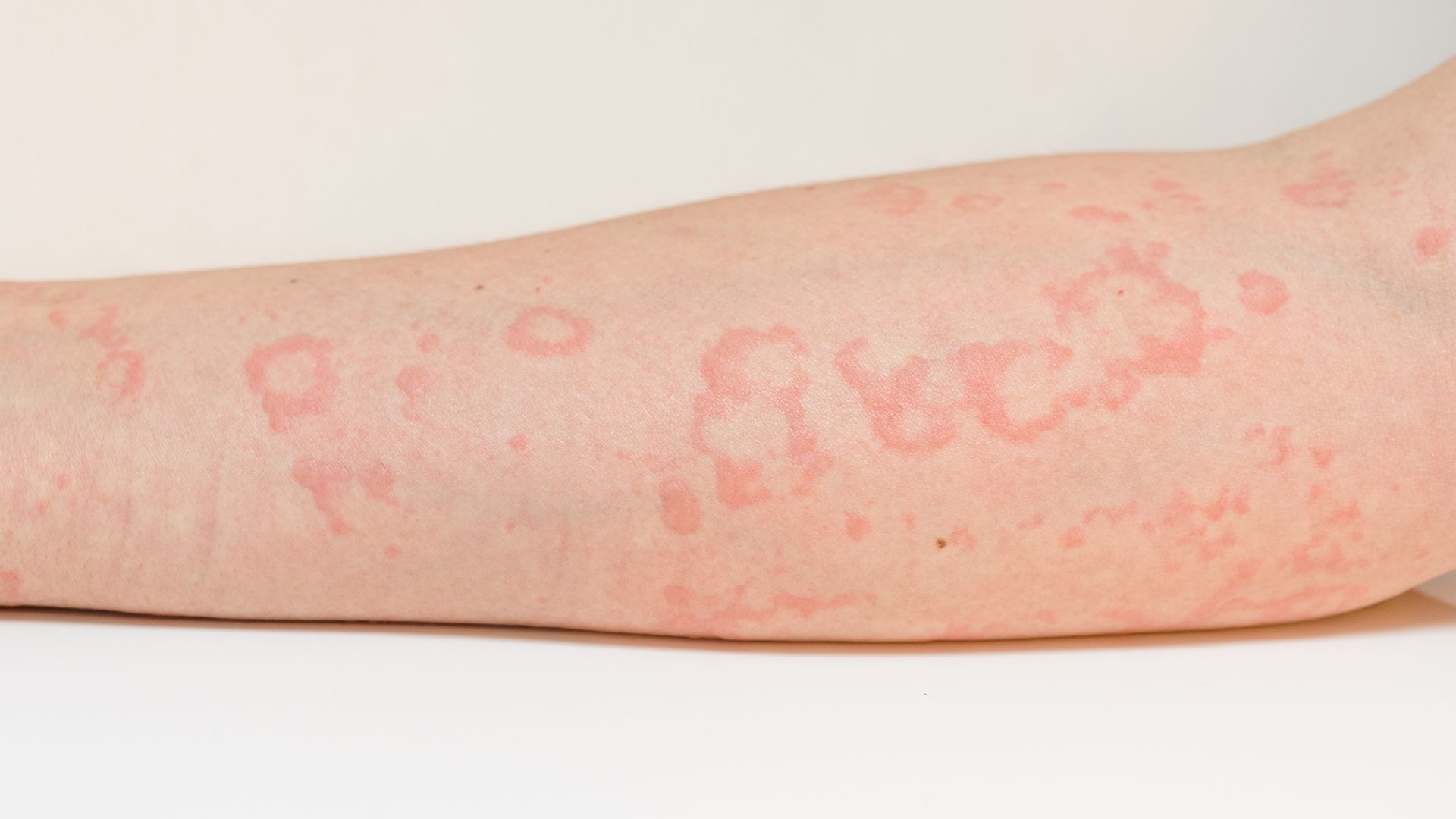Updated on March 13, 2024
Chronic spontaneous urticaria (CSU) is a condition that causes recurring episodes of hives or wheals—swollen, raised, itchy welts on the surface of the skin. In addition to hives, some people with CSU also experience angioedema, which is swelling in deeper layers of the skin.
The defining characteristic of CSU is that symptoms appear without any apparent or identifiable or consistent trigger—in other words, the cause is unknown. For many people, these symptoms occur every day or nearly every day. For hives to be diagnosed as chronic, symptoms need to last for six weeks or longer. (Hives that last for fewer than six weeks are not considered chronic and are called acute spontaneous urticaria). While six weeks is the minimum, many people experience symptoms for months or years.
While the condition resolves within a few years in many cases, it requires treatment.
The impact of itch
Mentioned above, itching is one of the main symptoms of CSU. Itch can manifest as a stinging, burning, or tickling sensation, or another irritating sensation that causes the desire to scratch.
With CSU, itching can be intense and severe. Itch can be a frustrating and distressing symptom. It can have a significant impact on a person’s quality of life, disrupting sleep and many aspects of everyday life.
The importance of avoiding scratching
If you are experiencing itch, it’s important to avoid scratching as much as possible. Reasons to avoid scratching include:
- Scratching can make itching worse. Scratching causes the release of a substance called histamine, which triggers more itching.
- Scratching can trigger hives. Scratching, rubbing, and pressure on the skin can also trigger hives and angioedema for some people. Usually this is associated with inducible urticaria, but a person can have both inducible and spontaneous urticaria at the same time.
- Scratching can damage the skin. Damaged skin is more susceptible to infections. Damaging the skin can also lead to scars and other skin changes.
Strategies to avoid scratching
It’s important that your treatment plan include strategies to reduce itch and prevent scratching. The first and most important strategy is to work with a healthcare provider. Based on your symptoms, your overall health, and other factors, your healthcare provider can prescribe medications to help control hives and itch. A healthcare provider can also help identify any health condition that may be causing or contributing to hives.
Additionally, you can try these strategies to cope with itch without scratching:
- Apply an anti-itch cream. Ask your healthcare provider about over-the-counter medications that can be applied to the skin to help ease itch, such as calamine lotion. Always tell your healthcare provider about any and all medications and over-the-counter medicines you are using.
- Apply moisturizer. Applying moisturizer can help ease itch. Choose fragrance-free moisturizers. Keeping the skin moisturized can also prevent itch by preventing dry skin.
- Apply a cold compress. A cold compress is a clean washcloth soaked in cold water. However, do not do this if exposure to cold induces hives.
- Find distractions. Find ways to keep your hands busy and your mind distracted when you are experiencing itch. Play a game on your phone, knit, fidget with a toy, meditate, read, or watch a show.
- Scratch something else. Some people with conditions that cause itch find it helpful to scratch something besides their skin when they are itchy, such as a patch of Velcro.




